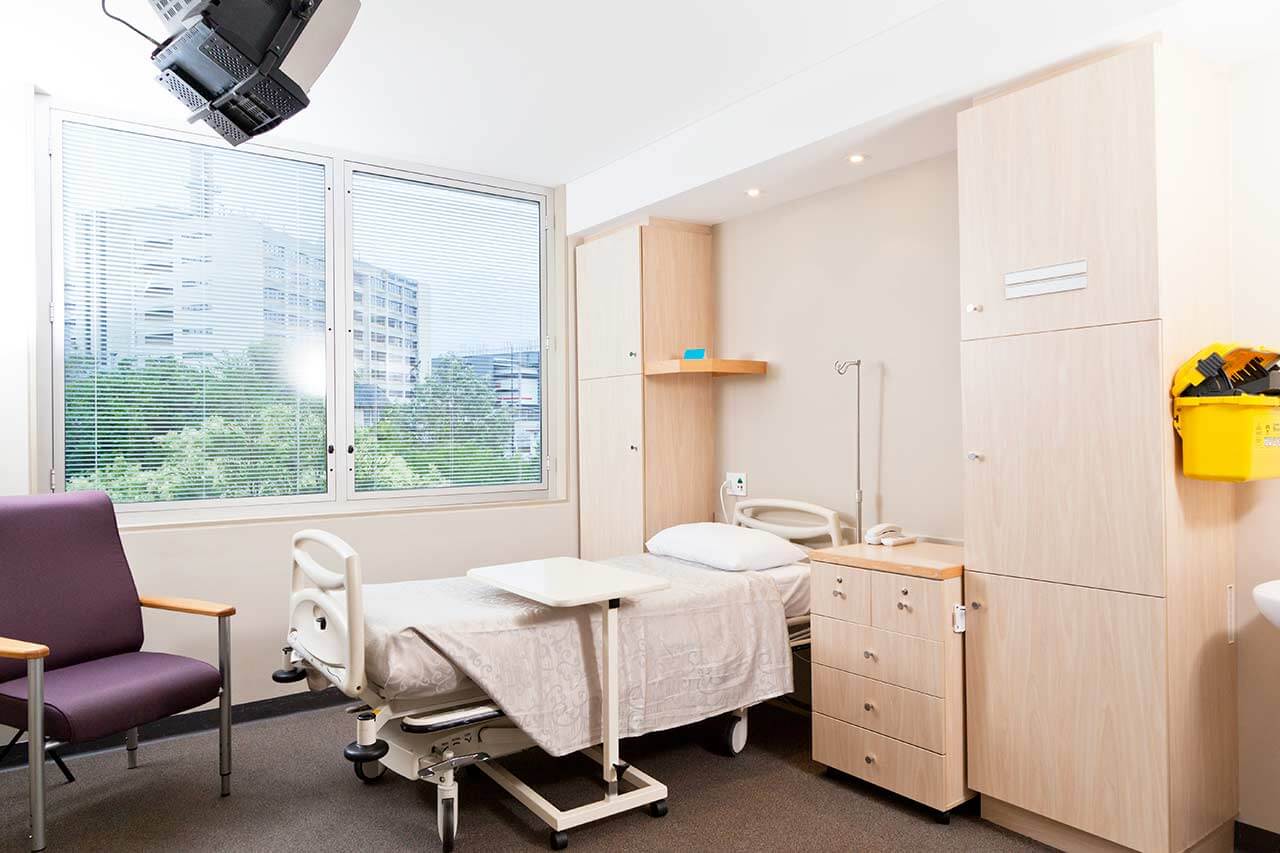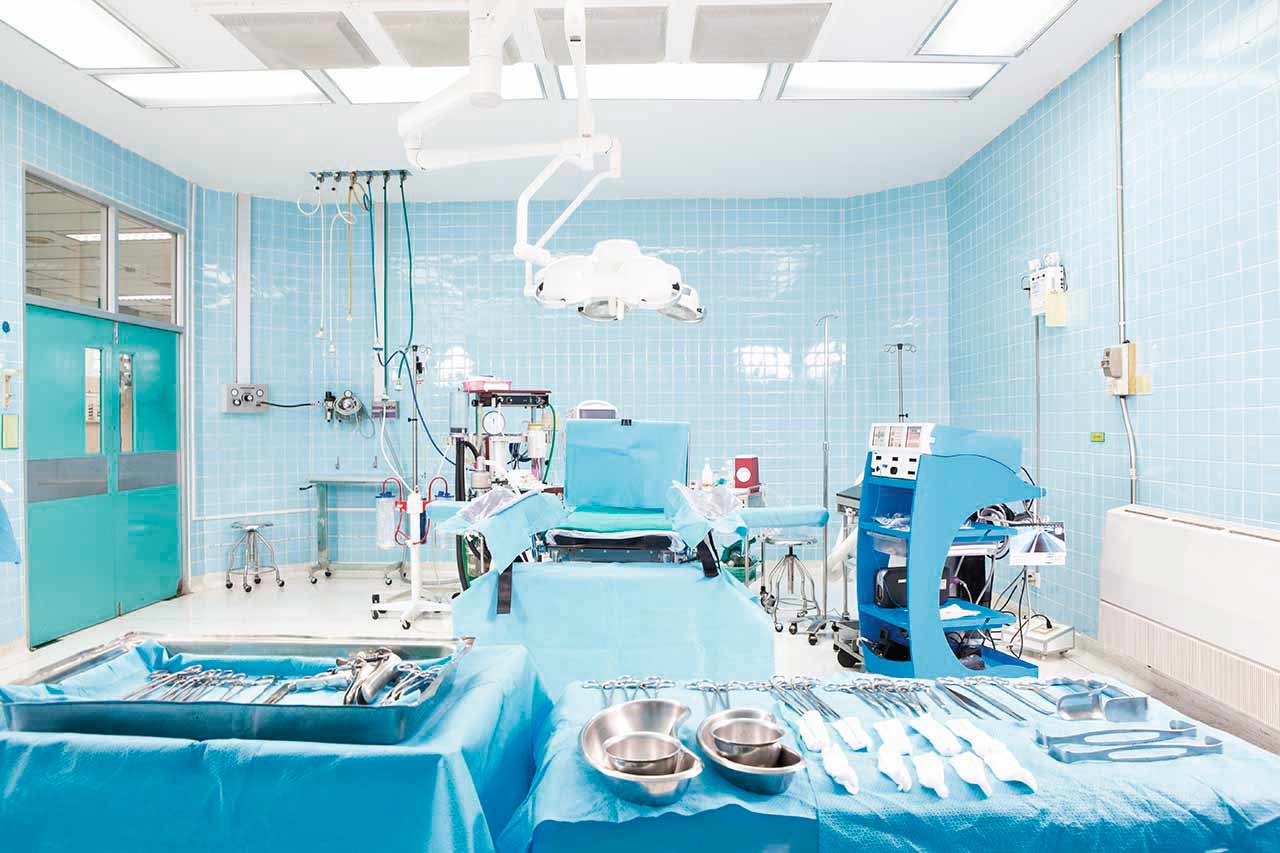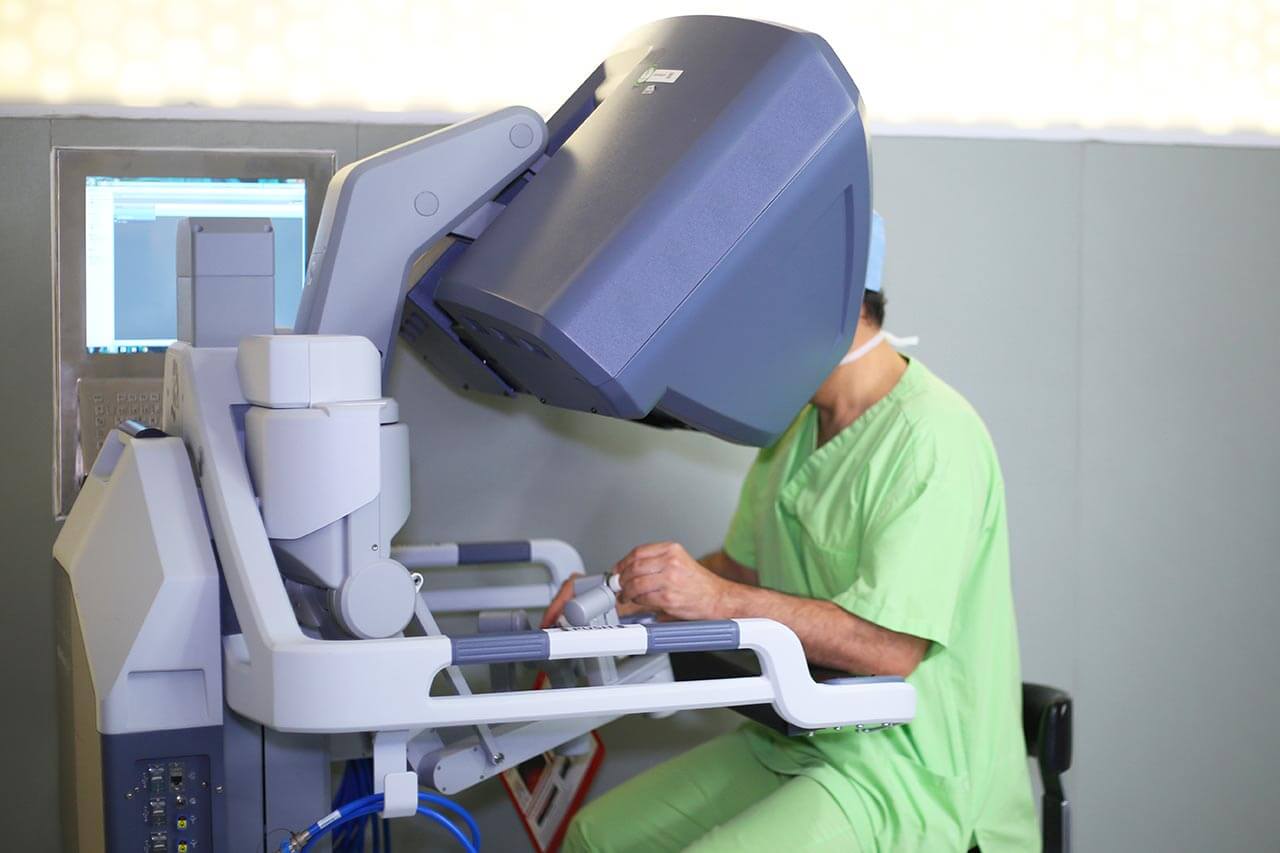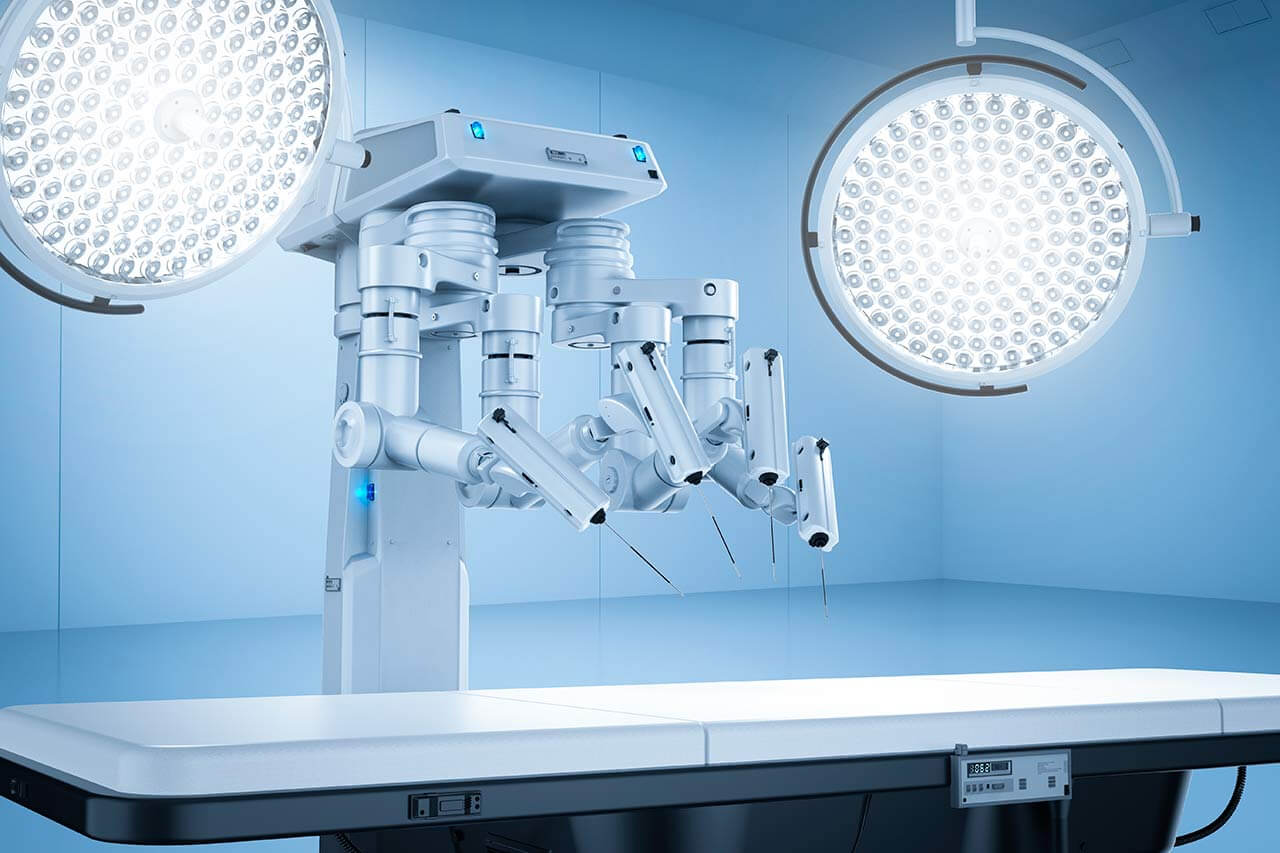
The program includes:
- Initial presentation in the clinic
- clinical history taking
- physical examination
- review of medical records
- laboratory tests:
- complete blood count
- general urine analysis
- biochemical analysis of blood
- TSH-basal, fT3, fT4
- indicators of inflammation (CRP, ESR)
- indicators blood coagulation
- abdominal ultrasound
- CT/MRI abdomen
- preoperative care
- Splenectomy
- symptomatic treatment
- control examinations
- the cost of essential medicines and materials
- nursing services
- nutrition recommendations
- full hospital accommodation
- explanation of future recommendations
Required documents
- Medical records
- Complete blood count (if available)
Service
You may also book:
 BookingHealth Price from:
BookingHealth Price from:
About the department
The Department of General, Abdominal, Endocrine, Colorectal and Thoracic Surgery at the Asklepios Municipal Hospital Bad Wildungen offers the full range of services in the areas of its specialization. The department's highly qualified surgeons perform surgical procedures of any complexity for the treatment of diseases of the abdominal cavity, gastrointestinal tract, including liver and pancreatic pathologies, proctological diseases, as well as thyroid, lung and pleural diseases. A separate and especially important focus of work of the medical facility is the surgical resection of benign and malignant neoplasms in the gastrointestinal tract, thyroid gland and lungs. The department is widely using advanced laparoscopic surgical techniques in order to avoid either abdominal cavity or chest opening. After such operations, the patient experiences a much less severe pain and quickly recovers from the operation. In addition, the risks of developing complications during the intervention or after it are practically zero. The Chief Physician of the department is Dr. med. Christian Meyer.
The department regularly performs surgery to treat inflammatory diseases of the pancreas, gallbladder, intestines, appendix, etc. When admitted to the department, the patient has to undergo the required complex of diagnostic examinations, ranging from laboratory tests, endoscopic examinations and ultrasound scanning to X-ray and computed tomography. After studying the diagnostic results, the doctors decide on the advisability of the surgical intervention. Most operations are performed using minimally invasive techniques with the help of an innovative 3D imaging system that significantly increases the safety of surgical treatment for the patient. Whenever required, the department also performs urgent surgical interventions.
Surgical resection of benign and malignant tumors of the gastrointestinal tract and liver is also an integral part of the department's clinical practice. The patients with such pathologies are diagnosed and treated in close cooperation with gastroenterologists. The main task of specialists during the diagnostics is to determine the type of tumor, its stage and localization. Taking into account these data, the general health of the patient and his age, the doctors elaborate the most effective treatment regimen for each patient. The basis of malignancy treatment is surgery. However, in most cases, surgery alone is not enough for complete cure or long-term remission. The doctors often complement surgery with adjuvant or neoadjuvant chemotherapy and radiation therapy. The patients with advanced cancer are provided with palliative care to relieve pain. Upon treatment completion, the department's doctors recommend patients to undergo regular follow-up examinations in order to exclude cancer recurrence.
The department's surgeons are especially focused on the surgical treatment of diseases of the respiratory tract, lungs, pleura, mediastinum and thoracic wall. The department's thoracic surgeons most often perform partial or total lobectomies (surgery to remove a lobe of the lung), surgery to remove lung metastases, surgery to drain excess fluid in the pleural cavity and placement of drainage systems. The preference is always given to minimally invasive surgery – the surgeons provide surgical access via several skin incisions without opening the chest. This type of treatment ensures minimal trauma to the healthy adjacent tissues, while the efficiency of surgery is at the highest level.
The department's main clinical focuses include:
- Surgery to treat benign and malignant tumors in the abdominal and gastrointestinal organs
- Surgery to treat abdominal diseases (for example, appendectomy, hernia repair, treatment of inflammatory diseases, etc.)
- Surgery to treat gastrointestinal diseases (for example, surgery for diverticulitis, inflammatory bowel disease, etc.)
- Surgery to treat pancreatic diseases
- Surgery to treat liver diseases, including removal of benign and malignant tumors, liver metastases
- Surgery to treat proctological diseases (for example, surgical treatment of abscesses, anal and rectal fistulas, hemorrhoids)
- Surgery to treat thyroid diseases
- Surgery to treat diseases of the respiratory tract, lungs, pleura, mediastinum and thoracic wall (special focus on lung cancer treatment)
- Other surgical options
Curriculum vitae
Dr. med. Christian Meyer is the Head of the Department of General, Abdominal, Endocrine, Colorectal and Thoracic Surgery at the Asklepios Municipal Hospital Bad Wildungen. The specialist received his medical education at the Faculty of Medicine of the Westphalian Wilhelm University of Muenster. In 2006, he received admission to medical practice, after which he worked as an Assistant Physician at the Bundeswehr Academic Hospital Berlin until 2008. In August 2008, he held the position of Research Fellow in the Department of Abdominal, Thoracic and Vascular Surgery at the University Hospital Marburg UKGM. Dr. Christian Meyer then worked as a Senior Physician in the same department for 4 years. The specialist has an additional qualification in emergency medical care, and is also a member of the German Society of General and Abdominal Surgery and the German Society of Surgery.
Photo of the doctor: (c) Asklepios Kliniken GmbH
About hospital
The Asklepios Municipal Hospital Bad Wildungen positions itself as a modern medical facility, which is focused on the provision of high-quality medical services using state-of-the-art medical technologies and advanced treatment methods. The hospital pays great attention to an individual approach to each patient, which is the basis for a successful treatment result. The medical complex enjoys the status of an academic hospital of the Philipps University of Marburg, thanks to which it has access to innovative medical developments, trains medical students and conducts advanced training for doctors. In addition, the medical facility is part of the Asklepios Kliniken GmbH – one of the three largest and most famous private medical networks in Germany.
The hospital has 10 specialized departments, as well as two interdisciplinary centers and an emergency medical service. The medical team of the hospital, which consists of more than 420 specialists, successfully treats simple common and especially complex diseases of the cardiovascular system, respiratory tract, musculoskeletal system, nervous system, spine, urinary system, etc. The Department of Radiology and the in-house laboratories serve for various diagnostic tests, which allow the doctors to establish an accurate diagnosis and develop the most effective treatment regimen, taking into account the particular clinical case of the patient. The hospital has 195 beds for patient hospitalization, and also provides medical care on an outpatient basis.
The special focus of the clinical activities of the medical facility is surgical treatment. The surgeons from various medical fields with brilliant success perform surgery to treat various diseases of the gastrointestinal tract, blood vessels, neurosurgical diseases, as well as interventions to treat orthopedic diseases. The hospital includes a certified Centre for Endoprosthetics (certified by the German Society of Orthopedics and Trauma Surgery), specializing in knee, hip and shoulder replacement surgery. The surgical treatment involves the use of modern medical technology, laparoscopic surgical techniques, state-of-the-art 3D imaging systems and navigation systems in order to ensure the highest level of safety of surgery.
Despite the many technical innovations in the hospital, the focus of the medical staff is on the patient, his health and comfort. The doctors' work with patients is based on respect and humanity.
Photo: (с) depositphotos
Accommodation in hospital
Patients rooms
The patients of the Asklepios Municipal Hospital Bad Wildungen live in comfortable single and double rooms. Each patient room has a separate bathroom with shower and toilet. The standard patient room furnishings include an automatically adjustable bed, a bedside table, a wardrobe, a TV, a radio and a telephone. The use of mobile phones in some buildings of the hospital is prohibited. The hospital also offers accommodation in a special section called Privita with enhanced-comfort patient rooms, the living conditions in which correspond to the level of rooms in a top-class hotel.
Meals and Menus
The patient and the accompanying person are offered tasty and balanced three meals a day. If for some reason you do not eat all foods, you will be offered an individual menu. Please inform the medical staff about your food preferences prior to treatment. The patients staying in the enhanced-comfort rooms are provided with an individual menu every day.
Further details
Standard rooms include:
Religion
The religious services are available upon request.
Accompanying person
During the inpatient program, the accompanying person can live with the patient in a patient room or a hotel of his choice. Our managers will help you choose the most suitable option.
Hotel
During an outpatient program, the patient can stay at the hotel of his choice. Our managers will help you choose the most suitable option.





